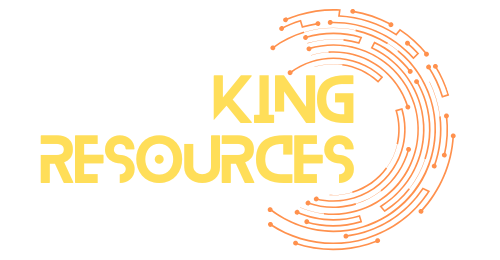Buying your first house can feel like stepping into a giant game of Monopoly—except there’s no “get out of jail free” card when things go awry. It’s an exciting adventure filled with dreams of backyard barbecues and cozy movie nights, but it can also be a bit overwhelming. From navigating mortgages to deciphering real estate jargon, the journey can seem like a maze designed by a particularly mischievous architect.
Table of Contents
ToggleUnderstanding the Home Buying Process
Buying a first house involves several key steps. Navigating this process can be exciting yet intimidating.
Assessing Your Financial Situation
Understanding personal finances is crucial. Start by evaluating income, expenses, and savings. Create a budget that accommodates homeownership costs, including property taxes, insurance, and maintenance. Analyze credit scores, as they impact mortgage approvals and interest rates. Aim for a score above 620 for favorable terms. Consulting a financial advisor provides additional insights. Knowing the overall financial health leads to better decision-making during the home buying process.
Understanding Mortgage Options
Mortgage choices vary significantly. Conventional loans typically require a 20% down payment, while FHA loans can start as low as 3.5%. VA loans offer zero-down options for veterans and active-duty military members. Compare fixed-rate and adjustable-rate mortgages for the best fit. Fixed-rate mortgages provide stability with consistent payments, whereas adjustable-rate mortgages may start lower but can fluctuate. Researching lenders ensures access to favorable terms and rates. Grasping these options supports informed decisions in the home buying journey.
Choosing the Right Location

Selecting the right location for a first home is crucial. A suitable area enhances the living experience and preserves future property value.
Neighborhood Considerations
Neighborhood qualities influence home buying decisions. Safety significantly impacts comfort levels for homeowners. Nearby parks and recreational spaces foster community interactions. School district ratings often affect family-oriented buyers. Local amenities like shops and restaurants enhance convenience. Assessing these factors ensures the chosen neighborhood aligns with lifestyle preferences.
Proximity to Work and Amenities
Proximity to work is essential for reducing commute times. Shorter commutes contribute to improved work-life balance, allowing more time for personal activities. Access to public transportation benefits those relying on alternate commuting methods. Additionally, nearby amenities such as grocery stores, gyms, and medical facilities simplify daily routines. Evaluating both commuting options and local services leads to a well-rounded decision-making process.
House Hunting Tips
House hunting requires strategic planning and informed decision-making. Focusing on key areas makes the process smoother.
Setting a Budget
Establishing a budget serves as the foundation for home buying. Begin by calculating all relevant expenses, including mortgage payments, property taxes, insurance, and maintenance costs. Experts recommend allocating around 28% of monthly income to housing expenses. Consider current savings and potential down payment amounts to shape financial calculations. Including a contingency fund for unexpected repairs ensures readiness for future expenses. Using online calculators can help visualize affordability while setting clear expectations for available properties.
What to Look For in a Property
Identifying essential features turns property viewing into a productive experience. Focus on the number of bedrooms and bathrooms to match family needs. Examine the layout and flow of spaces, ensuring they align with lifestyle preferences. Inspect the property’s condition, noting necessary repairs or updates. Prioritizing outdoor space, like a backyard or patio, enhances enjoyment and functionality. Investigate neighborhood attributes, including safety ratings, school districts, and access to amenities. These factors contribute significantly to overall satisfaction and future resale value.
Closing the Deal
Closing the deal marks a significant step in the journey of buying a first house. It involves crucial actions, including making an offer and navigating the final evaluations like inspections and appraisals.
Making an Offer
Making an offer starts with strategic planning. Based on market trends, buyers typically offer slightly below the asking price to allow for negotiation. The real estate agent helps craft an offer that includes contingencies, which protect the buyer’s interests. Contingencies may encompass financing, inspections, and appraisal results. Stipulating a reasonable timeframe for acceptance is essential, ensuring that the seller has a clear decision window. Understanding local market conditions can help buyers gauge how competitive their offer needs to be, especially in a seller’s market.
Navigating Inspections and Appraisals
Navigating inspections and appraisals plays a key role in finalizing the purchase. Home inspections typically occur after an offer acceptance, identifying potential issues like structural damage or outdated systems. Buyers should always be present during the inspection to gain firsthand insights. Evaluating the inspector’s report helps determine if repairs are necessary or if renegotiation is needed. Appraisals, conducted by licensed professionals, establish the property’s fair market value. Appraisals protect lenders by ensuring financial commitments reflect the home’s worth. Understanding both processes ensures a smoother path to closing, contributing to informed decision-making.
Settling Into Your New Home
Transitioning into a new home brings excitement and a sense of accomplishment. Adjusting to this change involves tackling various tasks that ensure comfort and functionality.
Moving Tips
Planning ahead simplifies the moving process. Create a checklist that outlines tasks, such as packing and hiring movers. Label boxes with their contents and designated rooms to enhance organization. Consider enlisting friends or family for assistance. They can provide support in packing and moving heavy items. Timing matters, so schedule your move on a weekday when demand is typically lower. Lastly, pack an essentials box containing necessary items for the first few days, including toiletries and basic kitchen supplies.
Home Maintenance Essentials
Regular maintenance is crucial for preserving home value. Start by establishing a seasonal maintenance schedule. Inspect roofs and gutters for debris after heavy rains or storms. Change air filters every 1-3 months to maintain good air quality. Check smoke detectors monthly and replace batteries at least once a year. Additionally, keep landscaping tidy to enhance curb appeal and prevent pest issues. Learn to identify signs of moisture or mold in basements, as early detection prevents larger problems. Familiarizing yourself with the home’s systems, such as plumbing and electrical, supports proactive management.
Buying a first home is a significant milestone filled with excitement and challenges. It requires thoughtful planning and a clear understanding of personal finances and market conditions. By evaluating essential factors like location and property features, new homeowners can make informed decisions that enhance their living experience.
As they settle into their new space, the journey doesn’t end. Regular maintenance and proactive management play crucial roles in preserving property value and ensuring long-term satisfaction. Embracing this new chapter with confidence and preparation sets the stage for countless memories and a rewarding homeownership experience.









